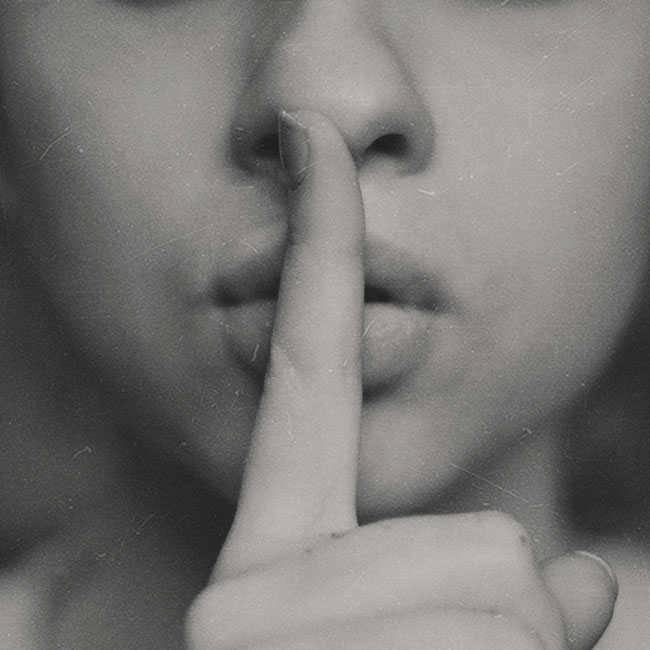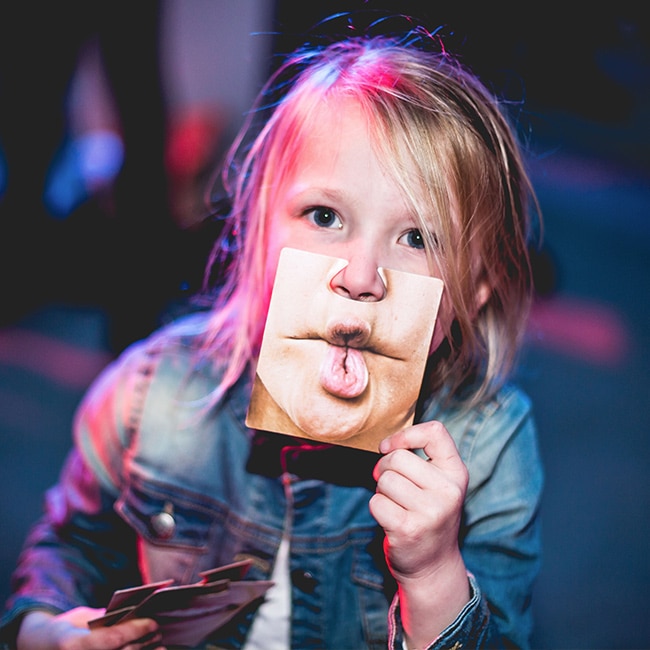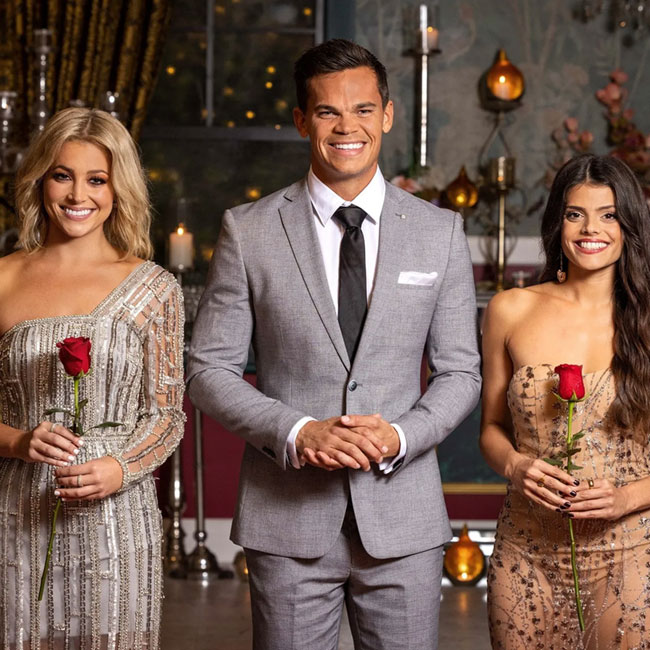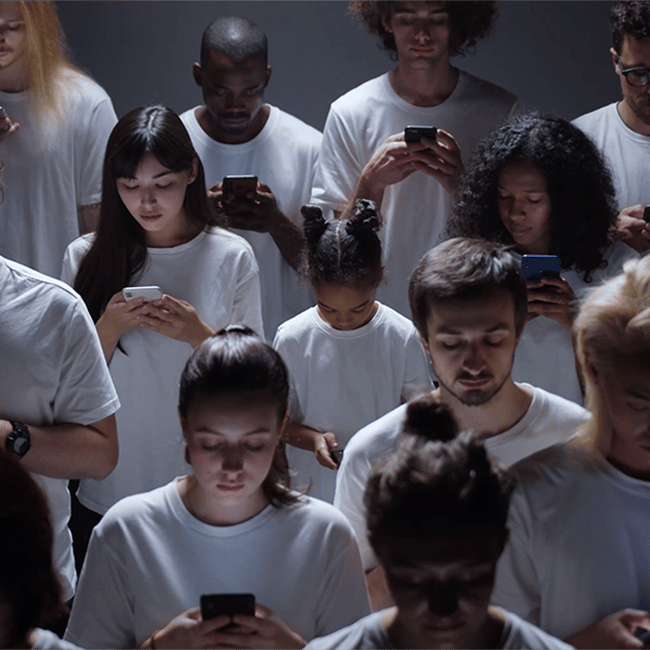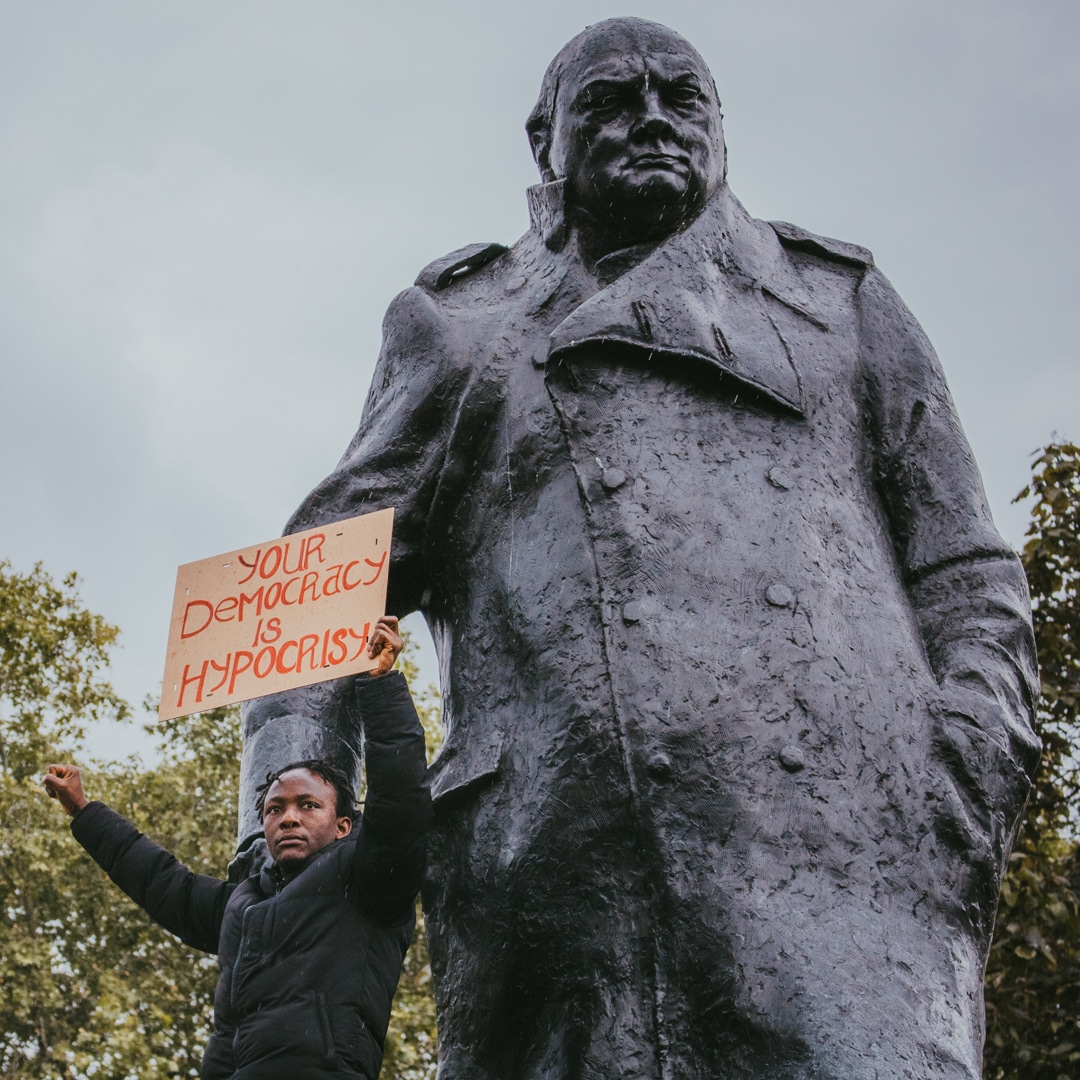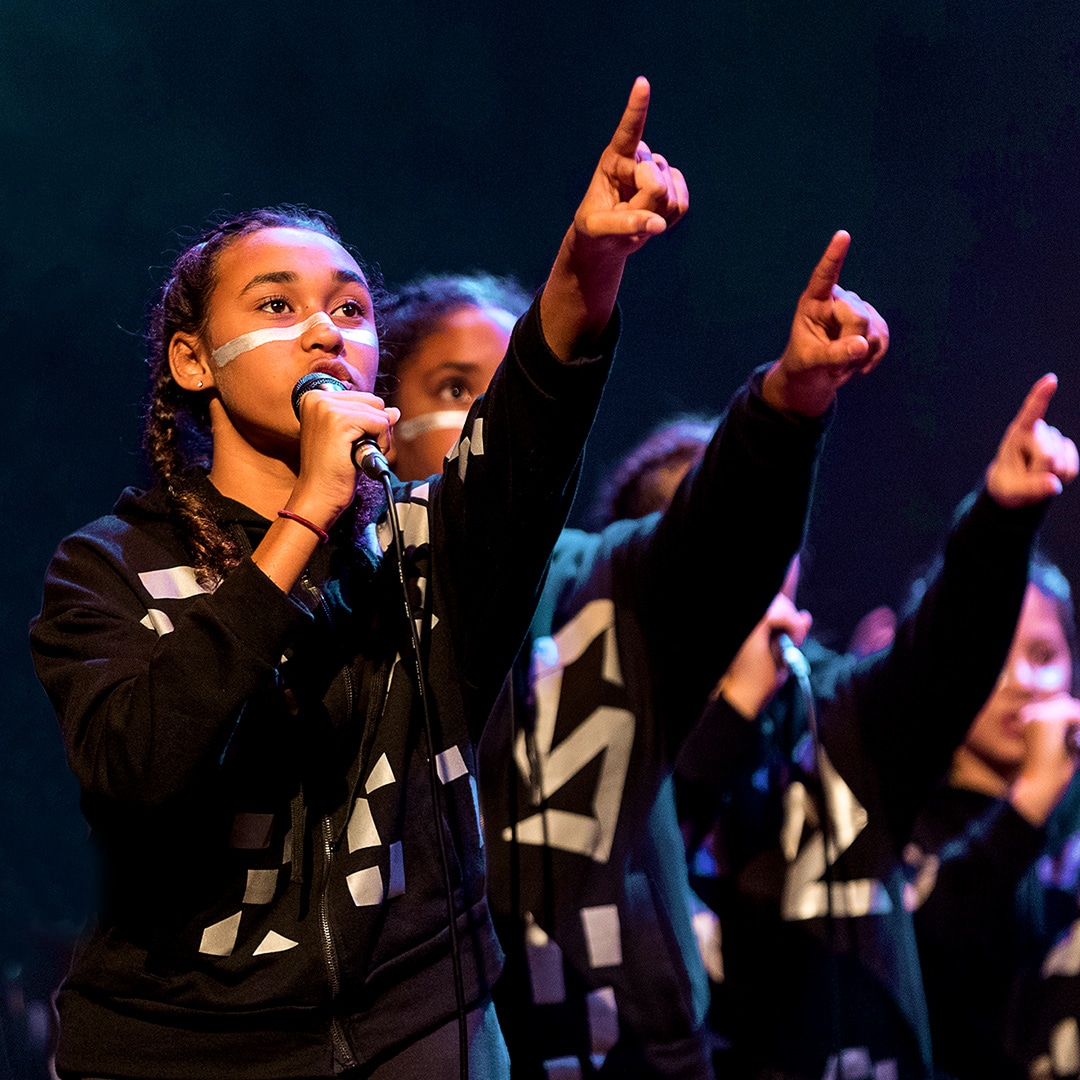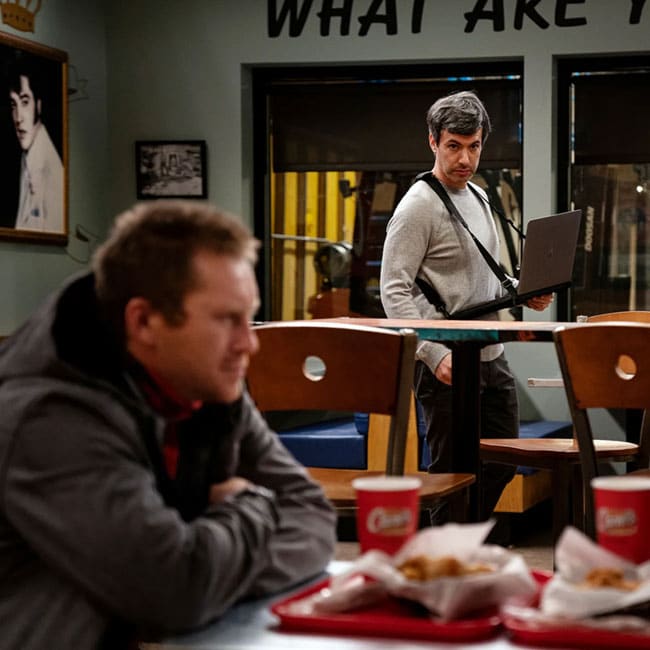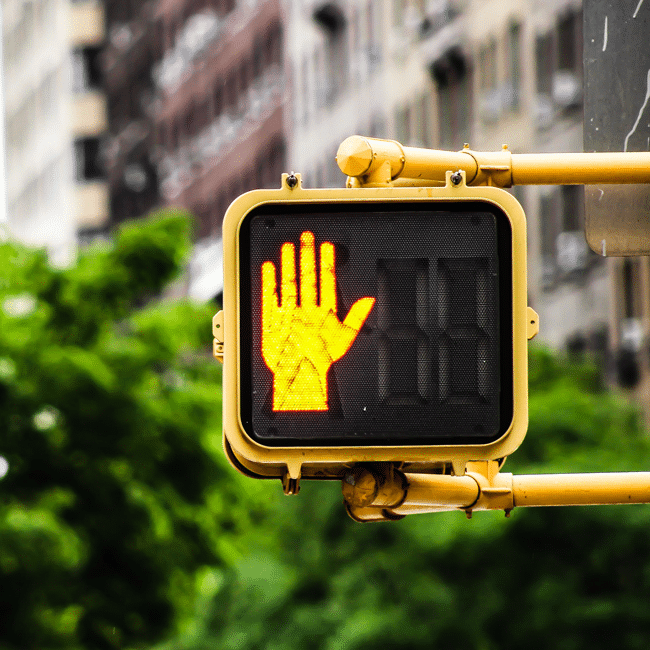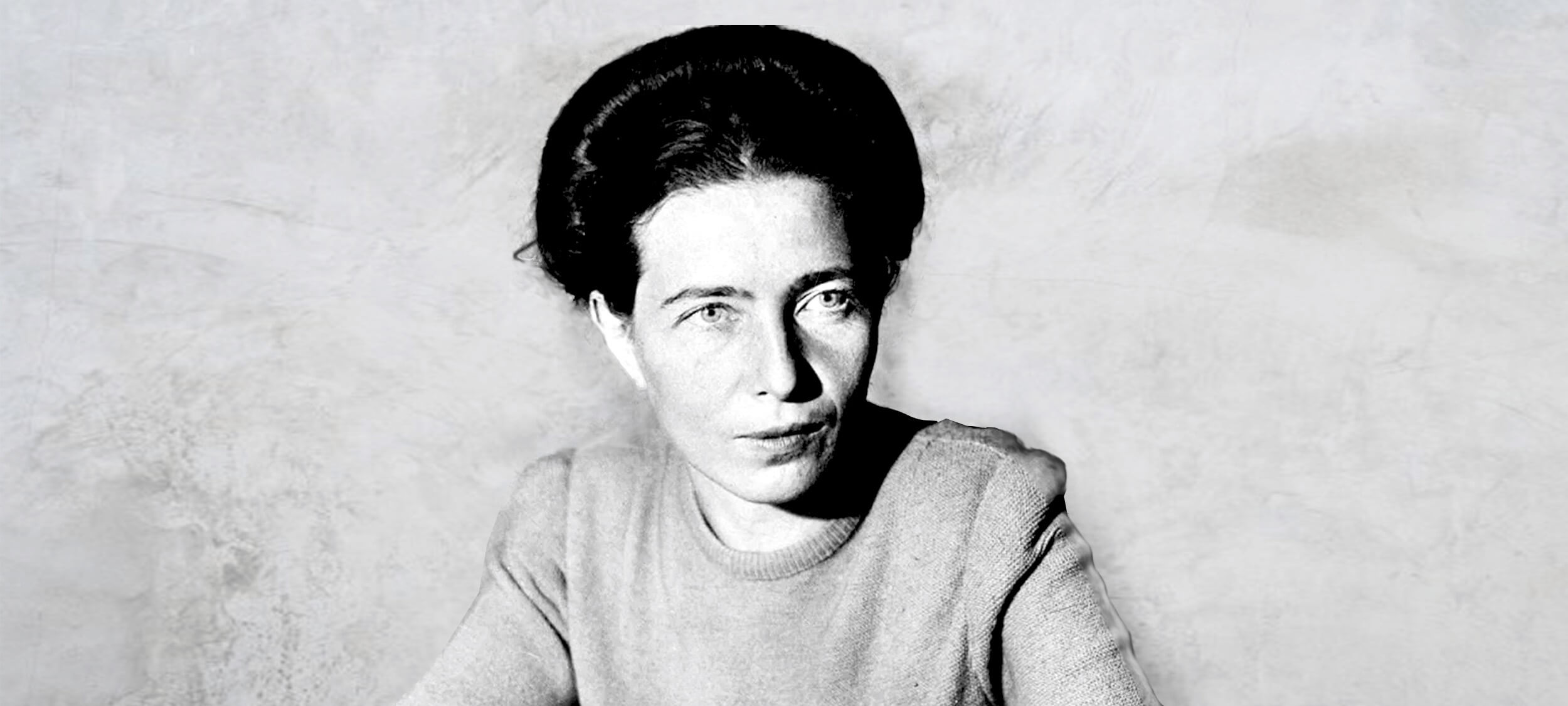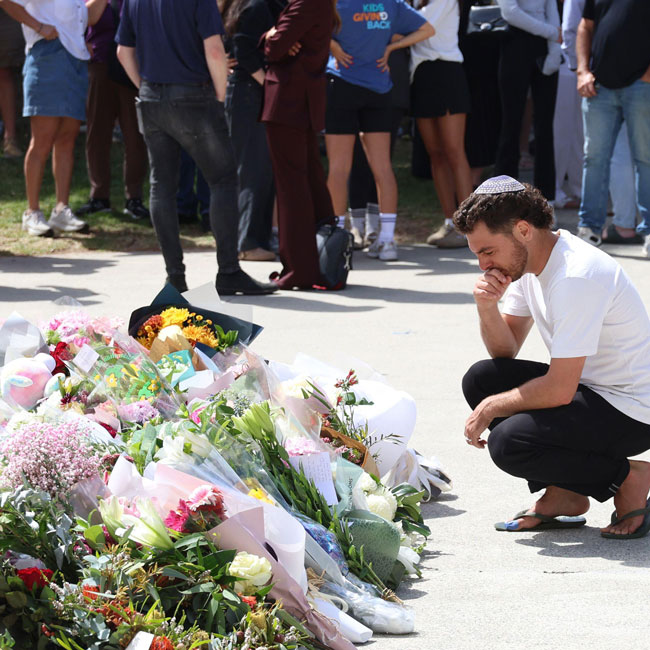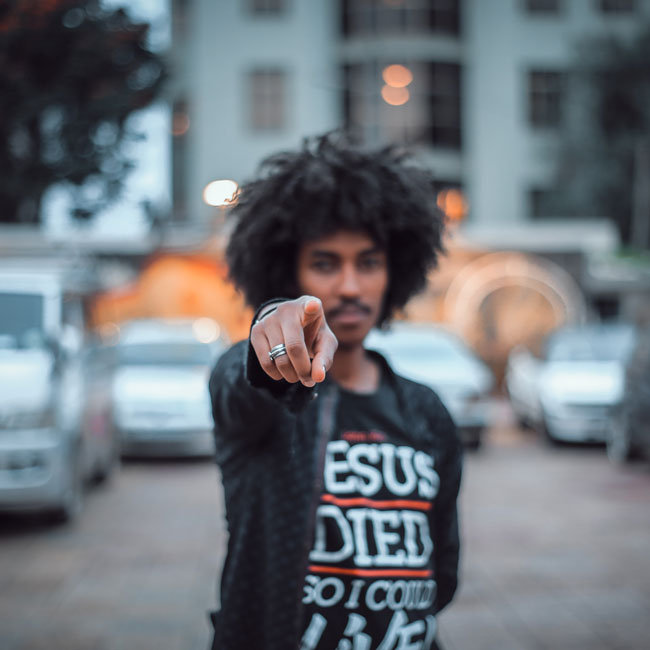When are secrets best kept?
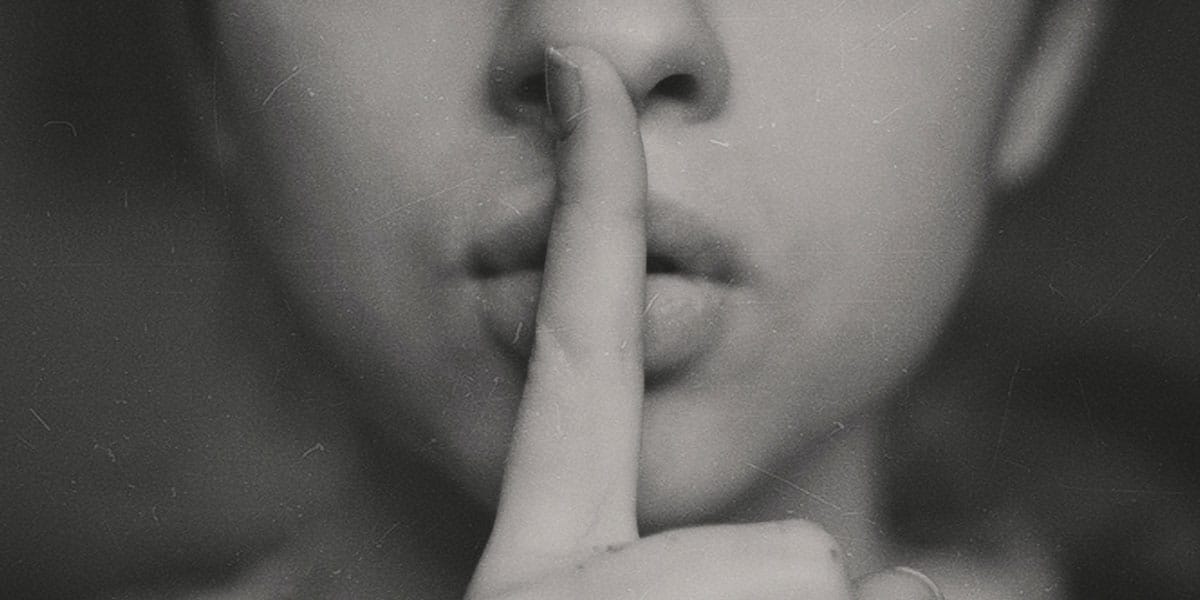
Throughout the ages, people subject to the torments of even the most oppressive regimes have found solace in the fact that even when their bodies are controlled, their minds can remain free.
People have the capacity to hold information and beliefs that cannot be discerned by any mind other than their own. Of course, in many cases (but not all) the mental reserves needed to preserve a secret can be destroyed by those who employ torture. However, only the most vicious and desperate resort to such despicable acts – and even then, they can never be sure that what they are told is actually true. But that is another topic for another time.
For now, I want to highlight the remarkable strength of secrets – a strength conferred by their retention in regions of the human mind that are inaccessible to others.
The fact that we cannot ‘read minds’ allows each of us a particular kind of freedom.
However, it would be a lonely existence if we were not also endowed with the capacity to share our thinking with others through all of the forms of communication available to us – physical, verbal, literal, and symbolic. So, for the most part, we liberally share our thoughts, feelings and beliefs in word and deed – while retaining some things entirely to ourselves.
While this is the context in which secrets exist, it’s important to note the distinction between ‘having’ and ‘holding’ secrets. In the first case, secrets can be our own – something that we know we choose not to disclose to others. In the second case, secrets can ‘belong’ to someone else who has shared them with us – on the condition we preserve the secrecy of what has been disclosed.
There are many examples of both kinds of secret. For example, a person may have suffered some kind of sexual assault in their youth but, for a range of reasons, may never disclose this to another soul. It will be their secret – and they will take it to the grave. Alternatively, if they share this secret with another person – on the condition that no other person ever know this truth – then the latter person will have agreed to hold the secret for as long as required to do so by the person whose secret has been shared with them.
It’s easy to see in this example just some of the problems with secrets. Let’s suppose that the person who abused the youth is still at large – possibly still offending. Does the person who ‘holds’ the secret have an obligation to prevent harm that is greater than the obligation to protect their friend’s secret? One might hope that the friend would agree to reveal the identity of the malefactor. However, what if they refuse? What if a person at risk of abuse asks a direct question about the person whom you know to be a threat to them? Are you required to lie or to dissemble in order to keep the secret?
Of course, the ability to have and to hold secrets can also enable great evil. For example, some secrets can obscure damaging, false beliefs that – even if sincerely held – present grave risks to individuals or whole communities. We can see such ‘secret knowledge’ at work in certain cults and conspiracy theories. Because secret, these sometimes deadly false beliefs cannot be challenged or amended by exposure to the ‘sunlight’ of open enquiry and debate. Deadly secrets can fester and grow in the dark to the point where they can poison whole sections of the community.
What’s more, perverse forms of secrecy can be employed by powerful interests as a tool to control others. Whole regimes have been propped up by ‘secret police’, the cloaking of wrongdoing behind the veil of ‘official secrets’, and so on.
The ethics of secrets have a practical bearing on matters affecting individuals, groups and whole societies. Core questions include: Is there a distinction between a ‘confidence’ and a ‘secret’? Do certain people have a right to know information that others wish to keep secret? Are we ever obliged to disclose another person’s secret? What, if anything, is a ‘legitimate secret’? Who decides questions of legitimacy? How does one balance the interests of individuals and society?
Join Dr Simon Longstaff on Thur 23 Nov as he lifts the lid on secrets and their role in living an ethical life. The Ethics of Secrets tickets on sale now.
Ethics in your inbox.
Get the latest inspiration, intelligence, events & more.
By signing up you agree to our privacy policy
You might be interested in…
Opinion + Analysis
Business + Leadership, Health + Wellbeing, Relationships
Office flings and firings
Explainer
Relationships
Ethics Explainer: Double-Effect Theory
Opinion + Analysis
Relationships, Science + Technology
To fix the problem of deepfakes we must treat the cause, not the symptoms
Opinion + Analysis
Relationships
Violent porn denies women’s human rights
BY Simon Longstaff
Simon Longstaff began his working life on Groote Eylandt in the Northern Territory of Australia. He is proud of his kinship ties to the Anindilyakwa people. After a period studying law in Sydney and teaching in Tasmania, he pursued postgraduate studies as a Member of Magdalene College, Cambridge. In 1991, Simon commenced his work as the first Executive Director of The Ethics Centre. In 2013, he was made an officer of the Order of Australia (AO) for “distinguished service to the community through the promotion of ethical standards in governance and business, to improving corporate responsibility, and to philosophy.” Simon is an Adjunct Professor of the Australian Graduate School of Management at UNSW, a Fellow of CPA Australia, the Royal Society of NSW and the Australian Risk Policy Institute.
Those regular folk are the real sickos: The Bachelor, sex and love

Those regular folk are the real sickos: The Bachelor, sex and love
Opinion + AnalysisRelationshipsSociety + Culture
BY Joseph Earp 4 NOV 2022
In 2021, the star of the US iteration of The Bachelorette, Katie Thurston, made international news off the back of one thirty second clip. In it, Thurston, all smiles and fey giggles, announced that she was forbidding the male contestants searching for her endless love from masturbating.
“I kind of had this idea I thought would be fun, where the guys in the house all have to agree to withhold their self-care as long as possible, if you know what I mean,” Thurston told the show’s two hosts, to a great deal of laughter and blushing. What was she was doing was what Bachelorette stars – and indeed many of those who feature in that brand of modern reality television focused on love and sex – have done for years.
Namely, she was upholding the show’s characteristic, and very strange, mix of euphemism and the explicit stating of norms that are so well-trodden in the culture that they’re not even acknowledged as norms at all.
Indeed, the most surprising thing about the clip was that it generated chatter, from both mainstream outlets and social media, in the first place. The Bachelorette’s habit of not so much ignoring the elephant in the corner, but ignoring the corner, and the walls connected to the corner, and perhaps even the entire room, has been part of its fabric from its very conception.
This is a show ostensibly about desire and love – which is a way of saying that it is about different states that circle around, and often lead to or follow from, sex – that shirks desperately away from most of the ways that we understand these things.
All we get on the desire front is a lot of people who pay a certain kind of attention to their bodies, occasionally – extremely occasionally – kissing one another. And all we get on the love front is a lot of talk about forever and eternity, along with roses, champagne flutes, and tears. Sex, meanwhile, lies far beyond the show’s window of acceptable or even conceivable behaviours. It’s there but it’s not there, a part of the very foundation of the show that’s still so taboo that if someone dares speak it aloud, as Thurston did, they’ll be the odd one.
This backlash to a bizarre norm constructed and maintained by the cameras was taken to an extreme in the case of Abbie Chatfield, a contestant on the Australian version of the show. For daring to tell Bachelor Matt Agnew that she “really wanted” to have sex with him, and admitting that she was “really horny”, Chatfield drew ire from not only the usual anti-sex bores, but from the so-called “sensible mainstream centre.” She was called a slut; her behaviour designated outrageous.
Such a backlash wasn’t just a policing of women’s bodies, though it was that. It was also a policing of the very standards of desire, part of a long attempt to prettify and clean up matters of sex and love, into “good” (read: socially acceptable) talk about these matters, and “bad” (read: unhinged, dangerous, impolite) talk about them.
In a society with a healthier understanding of sexuality, Chatfield wouldn’t be the deviation. The whole strange apparatus around her would be.
Whose Normal?
What makes The Bachelor and The Bachelorette such fascinating, internally frustrated objects is that their restating of the normal reaches such a volume, and resists so many specifics, that it reveals how utterly not-normal, arbitrary, and ill-defined most normal stuff is.
For instance, there is much talk in The Bachelor and The Bachelorette about romantic “compatibility”, a bizarre standard frequently talked about in the culture without ever being actually, you know, talked about. On this compatibility view of love, the pursuit of a significant other is a process of finding someone to fit into your life, as though you have one goal for how you want to be, and only one person who can help you achieve that. It’s that popular meme of the human being as an incomplete jigsaw puzzle, picking up pieces, one by one, and trying to slot them in.
What The Bachelor and The Bachelorette usually reveal, however, is that actually working out who is “the one” for you is much more difficult than the show’s own repeated emphasis on compatibility implies.
The stars of these shows frequently love and desire multiple people at the same time – the entire dramatic tension of the show comes from their final selection of a partner being surprising and tense.
If this compatibility stuff was as simple as it often described – or even clearly explicated – then we’d know after thirty seconds spent between potential two life partners that they’d end up together. There’d be no hook; no narrative arc. Eyes would lock, hearts would flutter, and the puzzle piece would just slot in.
In actuality, on both of these shows, the decision to pick one person over another frequently feels deeply random, and the always vague star usually has to blur their explanations even further into the abstract to justify why they want to be with him, and not with him, or with him.
The Bachelor and The Bachelorette are supposedly triumphant testaments to monogamy – almost all seasons of the show, except the one starring Nick Cummins, the Honey Badger, end with two and only two people walking off together.
But actually, in their typically confused way, they also end up explicating the benefits of polyamory. Often, the stars of these shows have a lot of fun, and derive a lot of pleasure and purpose from being intimate and romantic with a number of people at the same time. When it comes time to choose their “one”, it is frequently with tears – on a number of occasions, the stars have said, in so many words, “why not both?”
Get Those Freaks Away From Me
And why not both? Or more than both? The season of The Bachelor where no contestant is eliminated, everyone goes on dates together, and they all end up having sex and falling in love with one another, is no stranger than the season where only two walk into the sunset.
Monogamy is a norm, which is to say that it is an utterly arbitrary thing spoken loudly enough to seem iron-wrought. Norms are forceful; they tell us that things are the way they are, and could be no other way. In fact, they are so forceful that they have to state not only their own definitional boundaries, but also the boundaries of the thing that they are not – not just pushing the alien away, but the very act of designating things alien in the first place.
It was the philosopher Michel Foucault who noted this habit of branding certain objects, habits, or people as “other” in order to better understand and designate the normal. The Bachelor and The Bachelorette do this both frequently and implicitly, never drawing attention to the hand that is forever sketching abrupt and hurried lines in the sand.
Just consider the things that would be astonishing in the shows’ worlds, without even having to be taboo. For instance, imagine a star being perfectly happy committing to none of the contestants, and merely having sex with a few of them, one after the other. Or a star choosing a contestant but, rather than speaking of their flawless connection together, emphasising “mere” fun, or “mere” pleasure.
None of the preceding critique of these shows is a call to eradicate romantic and sexual norms altogether, if such an definitional cleansing were even possible. We have to make decisions about how we navigate the world together, and norms become a shorthand way of describing these decisions. What we should remember throughout, however, is that we are free to change this shorthand up whenever we like. And more than that, we should resist, wherever possible, the urge to create the other.
After all, if The Bachelor and The Bachelorette tell us anything, it’s that those regular folks are the real sickos.
Ethics in your inbox.
Get the latest inspiration, intelligence, events & more.
By signing up you agree to our privacy policy
You might be interested in…
Opinion + Analysis
Business + Leadership, Relationships
The future does not just happen. It is made. And we are its authors.
Opinion + Analysis
Politics + Human Rights, Relationships, Science + Technology
Parent planning – we shouldn’t be allowed to choose our children’s sex
Explainer
Relationships
Ethics Explainer: Authenticity
Opinion + Analysis
Relationships
Is modesty an outdated virtue?
BY Joseph Earp
Joseph Earp is a poet, journalist and philosophy student. He is currently undertaking his PhD at the University of Sydney, studying the work of David Hume.
Appreciation or appropriation? The impacts of stealing culture

Appreciation or appropriation? The impacts of stealing culture
Opinion + AnalysisRelationships
BY Paul-Mikhail Catapang Podosky 31 OCT 2022
It’s Halloween season. Perhaps your child has just watched Encanto and they’ve asked to wear Bruno’s ruana as a costume for trick-or-treating. Deciding how to answer requires traversing murky moral territory and unpacking the term ‘cultural appropriation.’
Recently, there has been a serious shift in thinking about what makes for an ethically appropriate costume, attracting considerable media attention from the likes of The New York Times, The Atlantic, and The Conversation. The primary concern is that when white people dress-up in outfits removed from their original cultural context, this constitutes cultural appropriation. But what exactly makes cultural appropriation ethically problematic? And does this mean that certain Halloween costumes, such as Bruno’s ruana, are off-the-table for white people?
At the Festival of Dangerous Ideas in September 2022, the session ‘Stealing Culture’ questioned whether cultural appropriation is an important ethical concept at all. This sounds like a strange enquiry since the answer seems like a clear ‘yes’. However, Luara Ferracioli, a philosopher at the University of Sydney, gave a surprising response: while charges of appropriation target serious moral wrongs, “we don’t need an umbrella term like ‘cultural appropriation’”. It is merely a catch-all phrase for a range of problematic behaviour that doesn’t capture anything morally distinctive.
When there is something genuinely wrong that a charge of cultural appropriation aims to pick out, Luara argues that we would do better simply to help ourselves to the variety of familiar and more precise ethical concepts already at our disposal, such as exploitation, misrepresentation, and causing offense. This results in a striking conclusion: the term ‘cultural appropriation’ is redundant, so we should eliminate it from our moral vocabulary.
I disagree with Luara. The concept of cultural appropriation is an important resource for moral thinking because it allows us to identify a very specific way that marginalised cultures are subjected to erosion by outsiders and subsumed within dominant ways of life. And with Halloween just around the corner, we should be especially worried about the appropriation of culturally significant outfits.
So what is cultural appropriation?
Starting with the second part of the term, appropriation involves taking something for one’s own use, often without permission. Cultural appropriation occurs when what is taken belongs to a culture that is not one’s own. A distinctive watermark of our time is the salience of this phenomenon in the public’s moral imagination, tending to focus on situations where a cultural material is taken out of context and worn solely for looks.
Overwhelmingly, the moral concern of appropriation has been directed at the practices of white people, such as Justin Bieber’s wearing of dreadlocks, Timna Woollard’s mimicking of Indigenous art, and the use of tribal symbolism by the Washington ‘Redskins’. As we approach Halloween, costumes are becoming a primary source of worry. Animated films such as Moana, Coco, Aladdin, and Mulan are extremely popular with children, and a spring of inspiration for potential ‘costumes’—such as the ruana worn by Bruno in Encanto. The main characters of these films are not white. And the films track the stories of protagonists engaging with distinctive forms of life, and the particular problems that emerge within them, may be quite unfamiliar to the typical white person.
When a white child wears, say, a ruana to resemble Bruno, what causes uneasiness is not just that it might be offensive. Rather, what makes it troubling is its connection to the historical oppression responsible for existing systems of unjust hierarchy, such as egregious histories of settler colonialism, on-going practices of ethnic discrimination, and growing material inequalities that track skin-colour.
What makes cultural appropriation ethically problematic?
Cultural appropriation is ethically problematic because of its unique way of exacerbating conditions of unjust inequality. Because of this, we must be extremely judicious about our choice of Halloween costume.
When a white person wears a ruana as a costume, each instance might not appear to require much moral attention. But when these acts are repeated over time, what emerges is something dangerous. A causal feedback loop between the taker and the cultural material results in changing the material’s significance. For example, the ruana, which is native to Colombia, and initially made by its indigenous and Mestizo people, risks transformation from being a garment contained within Colombian culture and history, to a ‘costume’ available for white people to imbue with new cultural meaning.
This is what make cultural appropriation a unique moral issue. Because cultural materials partly define the identity of a cultural group, such as the kippah for Jewish people or the kimono in Japanese culture, when these materials are appropriated by another group and imbued with new cultural meaning, the boundaries between the groups start to blur.
It becomes difficult to locate the fault lines between the culture that has taken and the culture that has been taken from. Continuing with our example, if the ruana becomes forcibly transfigured to meet the costume-related desires of white society, this will result in the ruana becoming a ‘shared’ cultural material; something that neither belongs to just one culture, but a common artefact that partly defines both.
Perhaps this doesn’t seem like such a bad thing. Cultural exchange can be mutually beneficial, after all. But in the context of historical oppression, cultural appropriation is morally alarming. Consider Colombia. It was colonised by the Spanish in the 1500s, and with this came violence, genocide, disease and environmental destruction. The impacts of this history are still felt today, with socio-economic disparities, compromised life opportunities, insecurity and violence, political instability, mass displacement, and a struggle for the recognition and respect of indigenous peoples.
Being sensitive to the history of oppression and its present impact means we must be morally on-guard against appropriation.
Colonisation in particular requires a special kind of wariness. Given how cultural appropriation can erode and obscure cultural identity boundaries, it is instrumental in furthering colonising projects. Specifically, the effect of cultural appropriation on cultures is asymmetrical: marginalised cultures become ‘subsumed’ within dominant ways of life. For example, the ruana, if continuously used by white people, could become a shared cultural artefact dominantly understood as a colourful ‘poncho’ to be worn at Halloween, rather than something at the heart of Colombian cultural practices.
This unique way of exacerbating conditions of inequality means that cultural appropriation is a moral concept worth holding onto. Contrary to Luara’s scepticism, there isn’t anything else in our bag of moral terminology up to the task of capturing the distinctive wrong that historically marginalised cultures face when they are subjected to changes from the outside.
Appreciate, but not appropriate
Does this mean we can never engage with unfamiliar cultural materials? In order to answer, we must consider the distinction between cultural appropriation and cultural appreciation. Where the former erodes cultural boundaries, the latter respects them. But appreciating culture takes considered effort.
Firstly, it’s important to learn the cultural significance of a material and whether its use is a contribution to an existing cultural practice, rather than playing a role in establishing a new one. Secondly, we should understand whether others will interpret their use of a cultural material in the same way as them. For example, when one wears a ruana to a traditional Colombian festival, one contributes to existing cultural practices, and one can be seen by others to be participating in this way. This keeps the ruana within its cultural domain rather than giving it new meaning that overshadows it original significance.
When it comes to a child requesting to wear a culturally significant outfit for Halloween we need to be mindful of the context in which it is worn, and if it’s taken outside of its cultural context, then consider whether it could be a case of cultural appropriation.
And remember that there are kinds of costume that do not risk diluting other cultures or reinforcing historical injustices. By practising cultural awareness, we can enjoy events like Halloween and do so in a way that respects and appreciates other cultures.
Visit FODI on demand for more provocative ideas, articles, podcasts and videos.
Ethics in your inbox.
Get the latest inspiration, intelligence, events & more.
By signing up you agree to our privacy policy
You might be interested in…
Explainer
Relationships
Ethics explainer: Nihilism
Explainer
Relationships
Ethics Explainer: Hope
Explainer
Relationships
Ethics Explainer: Plato’s Cave
Opinion + Analysis
Business + Leadership, Relationships
Treating citizens as customers is a recipe for distrust
BY Paul-Mikhail Catapang Podosky
Paul-Mikhail Catapang Podosky (he/they) is a Filipinx philosopher, passionate about all things related to human drama. His research investigates the limits of conceptual engineering as a tool for promoting social justice, and in the critical philosophy of race and gender, he explores the politics of classification, with a specific focus on mixed-race identity. Previously, he was Global Perspectives on Society Fellow at New York University, and he is presently Lecturer in Philosophy at Macquarie University.
Age of the machines: Do algorithms spell doom for humanity?

Age of the machines: Do algorithms spell doom for humanity?
Opinion + AnalysisRelationshipsScience + Technology
BY Nick Jarvis 14 OCT 2022
The world’s biggest social media platform’s slide into a cesspit of fake news, clickbait and shouty trolling was no accident.
“Facebook gives the most reach to the most extreme ideas. They didn’t set out to do it, but they made a whole bunch of individual choices for business reasons,” Facebook whistleblower Frances Haugen said.
In her Festival of Dangerous Ideas talk Unmasking Facebook, data engineer Haugen explained that back in Facebook’s halcyon days of 2008, when it actually was about your family and friends, your personal circle wasn’t making enough content to keep you regularly engaged on the platform. To encourage more screentime, Facebook introduced Pages and Groups and started pushing them on its users, even adding people automatically if they interacted with content. Naturally, the more out-there groups became the more popular ones – in 2016, 65% of people who joined neo-Nazi groups in Germany joined because Facebook suggested them.
By 2019 (if not earlier), 60% of all content that people saw on Facebook was from their Groups, pushing out legitimate news sources, bi-partisan political parties, non-profits, small businesses and other pages that didn’t pay to promote their posts. Haugen estimates content from Groups is now 85% of Facebook.
I was working for an online publisher between 2013 and 2016, and our traffic was entirely at the will of the Facebook algorithm. Some weeks we’d be prominent in people’s feeds and get great traffic, other weeks it would change without warning and our traffic and revenue would drop to nothing. By 2016, the situation had gotten so bad that I was made redundant and in 2018 the website folded entirely and disappeared from the internet.
Personal grievances aside, Facebook has also had sinister implications for democracy and impacts on genocide, as Haugen reminds us. The 2016 Trump election exposed serious privacy deficits at Facebook when 87 million users had their data leaked to Cambridge Analytica for targeted pro-Trump political advertising. Enterprising Macedonian fake news writers exploited the carousel recommended link function to make US$40 million pumping out insane – and highly clickable – alt-right conspiracy theories that undoubtedly played a part in helping Trump into the White House – along with the hackers spreading anti-Clinton hate from the Glavset in St Petersburg.
Worse, the Myanmar government sent military officials to Russia to learn to use online propaganda techniques for their genocide of the Muslim Rohingya from 2016 onwards, flooding Facebook with vitriolic anti-Rohingya misinformation and inciting violence against them. As The Guardian reported, around that time Facebook had only two Burmese-speaking content moderators. Facebook has also been blamed for “supercharging hate speech and inciting ethnic violence” (Vice) in Ethiopia over the past two years, with engagement-based ranking pushing the most extreme content to the top and English-first content moderation systems being no match for linguistically diverse environments where Facebook is the internet.
There are design tools that can drive down the spread of misinformation, like forcing people to click on an article before they blindly share it and putting up a barrier between fourth person plus sharers, so they must copy and paste content before they can share or react to it. These have the same efficacy at preventing misinformation spread as third-party fact-checkers and work multi-lingually, Haugen said, and we can mobilise as nations and customers to put pressure on companies to implement them.
But the best thing we can do is insist on having humans involved in the decision-making process about where to focus our attention, because AI and computers will always automatically opt for the most extreme content that gets the most clicks and eyeballs.
For technology writer Kevin Roose, though, in his talk Caught in a Web, we are already surrounded by artificial intelligence and algorithms, and they’re only going to get smarter, more sophisticated, and more deeply entrenched.
70% of our time on YouTube is now spent watching videos suggested by recommendation engines, and 30% of Amazon page views are from recommendations. We let Netflix preference shows for us, Spotify curate radio for us, Google Maps tell us which way to drive or walk, and with the Internet of Things, smart fridges even order milk and eggs for us before we know we need them.
A commercialised tool one AI researcher told Roose about called pedestrian reidentification can identify you from multiple CCTV feeds, put that together with your phone’s location data and bank transactions and figure out to serve you an ad for banana bread as you’re getting off the train and walking towards your favourite café.
And in news that will horrify but not surprise journalists, Roose said we’re entering a new age of ubiquitous synthetic media, in which articles written by machines will be hyper personalised at point of click for each reader by crawling your social media profiles.
After 125 years of the reign of ‘all the news that’s fit to print’, we’re now entering the era of “all the news that’s dynamically generated and personalised by machines to achieve business objectives.”
How can we fight back and resist this seemingly inevitable drift towards automation, surveillance and passivity? Roose highlights three things to do:
Quoting Socrates, Know Thyself. Know your own preferences and whether you’re choosing something because you like it or because the algorithm suggested it to you.
Resist Machine Drift – this is where we unconsciously hand over more and more of our decisions to machines, and “it’s the first step in losing our autonomy.” He recommends “preference mapping” – writing down a list of all your choices in a day, from what you ate or listened to, to what route you took to work. Did you make the decisions, or did an app help you?
Invest in Humanity. By this he means investing time in improving our deeply human skills that computers aren’t good at, like moral courage, empathy and divergent, creative thinking.
Roose is optimistic in this regard – as AI gets better at understanding us and insinuating its way into our lives, he thinks we’re going to see a renewed reverence for humanism and the things machines can’t do. That means more appreciation for the ‘soft’ skills of health care workers, teachers, therapists, and even an artisanal journalism movement written by humans.
I can’t be quite as optimistic as Roose – these soft skills have never been highly valued in capitalism and I can’t see it changing (I really hope I’m wrong), but I do agree with him that each new generation of social media app (e.g. Tik Tok and BeReal), in the global West at least, will be less toxic than the one before it, driven by the demands of Millennials and Generation Z, and those to come.
Eventually, this generational movement away from the legacy social media platforms, which have become infected with toxicity, will cause them to either collapse or completely reshape their business model to be like newer apps if they’re going to keep operating in fragile countries and emerging economies.
And that’s one reason to not let the machines win.
Visit FODI on demand for more provocative ideas, articles, podcasts and videos.
Ethics in your inbox.
Get the latest inspiration, intelligence, events & more.
By signing up you agree to our privacy policy
You might be interested in…
Explainer
Relationships
Ethics Explainer: Respect
Opinion + Analysis
Relationships
Freedom and disagreement: How we move forward
Opinion + Analysis
Business + Leadership, Health + Wellbeing, Relationships
Office flings and firings
Opinion + Analysis
Politics + Human Rights, Relationships, Society + Culture
The ethics of tearing down monuments
BY Nick Jarvis
Nick Jarvis is a Sydney-based editor and writer on the arts, culture and technology. He's written for The Ethics Centre, the Walkleys, Sydney Festival, Sydney Film Festival, Vice and many Australian arts organisations. He currently works for Sydney Festival.
Should we abolish the institution of marriage?

Should we abolish the institution of marriage?
Opinion + AnalysisRelationships
BY Anna Goodman 12 OCT 2022
As it stands, in the western world, marriage is the legal union between two people who are typically romantic or sexual partners. Some philosophers are now revisiting the institution of marriage and asking what can be done to reform it, and if it should exist at all.
The institution of marriage has been around for over 4,000 years. Historians first see instances of marriages popping up around 2350 BCE in Mesopotamia, or modern day Iraq. Marriage turned a woman into a man’s object whose primary purpose was producing legitimate offspring.
Throughout the following centuries and millennia, the institution of marriage evolved. As the Roman Catholic church grew in power throughout the 6th, 7th, and 8th centuries, marriage became widely accepted as a sacrament, or a ceremony that imparted divine grace on two people. During the Middle Ages, as land ownership became an important part of wealth and status, marriage was about securing male heirs to pass down wealth and increasing family status by having a daughter marrying a land-owning man.
“The property-like status of women was evident in Western societies like Rome and Greece, where wives were taken solely for the purpose of bearing legitimate children and, in most cases, were treated like dependents and confined to activities such as caring for children, cooking, and keeping house.”
The thinking that a marriage should be about love really only began in the 1500s, during a period now known as the Renaissance. Not much improved with regard to equality for women, but the movement did put forth the idea that two parties should enter a marriage consensually. Instead of women being viewed as property to be bought and sold with a dowry, women had more autonomy which elevated their social status. Into the 1700s, while the working class were essentially free to marry who they wanted (as long as they married people in the same social class), girls born into aristocratic families were betrothed as infants and married as teenagers in financial alliances between families.
But marriage doesn’t look like this anymore, right? It’s easy to forget that interracial marriage was illegal in the United States until 1967 and until 1985 in South Africa. Marital rape only became a crime in all American states in 1993. Australia only legalised gay marriage at the end of 2017, making it one of 31 countries to do so. In the 4,000 years of marriage, most legalised marriage equality has happened in the last 50 years.
The nasty history of marriage has prompted some philosophers to ask: is it time to get rid of the institution of marriage? Or, is it possible to reform?
An argument for the abolition of marriage
“Freedom for women cannot be won without the abolition of marriage.”
In the last hundred years, there has been plenty of discourse about where marriage fits into modern life. One notable voice, Sheila Cronan, a feminist activist who participated actively in the second wave feminist movement in America, argued that marriage is comparable to slavery, as women performed free labour in the home and were reliant on their husbands for financial and social protection.
“Attack on such issues as employment discrimination are superfluous; as long as women are working for free in the home we cannot expect our demands for equal pay outside the home to be taken seriously.”
Cronan believed that it would be impossible to achieve true gender equality as long as marriage remained a dominant institution. The comparison of marriage to slavery was hugely controversial, though, because white women had significantly better living conditions and security than slaves. In a modern, western context, Cronan’s article may seem like a bit of an overstatement on the woes of marriage.
Is there an alternative to abolition?
Another contribution to the philosophy of marriage is the work of Elizabeth Brake. Instead of abolishing marriage, she puts forward a theory in her 2010 paper What Political Liberalism Implies for Marriage Law called “minimal marriage,” which claims that any people should be allowed to get married and enjoy all the legal rights that come with it, regardless of the kind of relationship they are in or the number of people in it.
Brake argues that when the state allows some kinds of marriages but not other kinds, the state is asserting one kind of relationship as more morally acceptable than another. Marriage in the western world provides a number of legal benefits: visitation rights in hospitals if someone gets sick, fewer complications around joint bank accounts, and the right to inherit the estate if a partner dies, to name a few. It is also often viewed as a better or superior kind of relationship, so those who are not allowed to get married are seen as being in an inferior kind of relationship.
Take for example the case of two elderly women who are close friends and have lived together for the last 30 years. If one of the elderly women falls ill and needs to go to hospital, her friend might not be able to visit her because she is not a spouse or next-of-kin. If she passes away and her friend is not in her will, then the friend will have no say over what happens to her estate. The reason these friends were not married was because they felt no romantic attraction to each other. But Brake asks us: why should their relationship be seen as less valuable or less important than a romantic one? Why should their caring relationship not be afforded the legal rights of marriage?
Many legal rights are tied to marriage. In the US, there are over 1000 federal “statutory provisions,” or clauses written in the law, in which marital status is a factor in determining who gets a benefit, privilege, or right. Brake argues that reforming marriage to be “minimal” is the best way to ensure that as many people as possible have these legal rights.
So, what should the future of marriage be?
Many people today will say that the day they got married was one of the best days of their lives. However, just because we have a more positive view of it now does not erase the thousands of years of discriminatory history. In addition, practices such as child marriage and arranged marriages that no longer occur in the western world are still the norm in other parts of the world.
While Cronan presents a strong argument for abolishing marriage and Brake presents a strong argument for its reform , we need to examine the underlying social ills that make marriage so complicated. Additionally, there’s no guarantee that abolishing or reforming marriage will eliminate the sexism, racism, and homophobia that create the conditions for marriage to be so discriminatory in the first place. Marriage may not be creating inequality as much as it is a symptom of inequality. While the question of what to do with marriage is worth interrogating, it’s important to consider the larger role it might play in creating social change and working towards equality.
Ethics in your inbox.
Get the latest inspiration, intelligence, events & more.
By signing up you agree to our privacy policy
You might be interested in…
Opinion + Analysis
Society + Culture, Relationships
Discomfort isn’t dangerous, but avoiding it could be
Opinion + Analysis
Politics + Human Rights, Relationships
Ask an ethicist: do teachers have the right to object to returning to school?
Opinion + Analysis
Climate + Environment, Politics + Human Rights, Relationships, Society + Culture
The youth are rising. Will we listen?
Opinion + Analysis
Relationships, Society + Culture
Based on a true story: The ethics of making art about real-life others
BY Anna Goodman
Anna is a graduate of Princeton University, majoring in philosophy. She currently works in consulting, and continues to enjoy reading and writing about philosophical ideas in her free time.
I'd like to talk to you: 'The Rehearsal' and the impossibility of planning for the right thing

I’d like to talk to you: ‘The Rehearsal’ and the impossibility of planning for the right thing
Opinion + AnalysisRelationshipsSociety + Culture
BY Joseph Earp 6 OCT 2022
Nathan Fielder’s The Rehearsal, perhaps one of the slipperiest works of modern television, aims to solve a very complex, deeply recurrent problem: how do we navigate our interpersonal relations, which are ever-changing, and filled with opportunities to let people down and harm those we love?
In the show, which constantly blends the real with the fake, the documentary with the theatrical, the off-kilter comedian Nathan Fielder’s solution is supposedly simple: he finds people who are preparing to have difficult conversations with friends and loved ones, and gives them the opportunity to rehearse these encounters ahead of time.
The idea behind this ridiculous, though oddly logical practice is thus: if these people have already rehearsed an uncomfortable exchange with a loved one, then they can predict for every variable. They can polish their approach. When conversations branch off into different directions, they will have accounted for that branching already, leaving them to always choose the best, most impactful response.
To aid his mentees in this practice, Fielder uses an ever-escalating series of interventions. He creates dialogue flow trees, in which conversations can be unveiled in their full myriad of possibilities. He stages strange obstructions, ranging from fake babies to simulated drug overdoses. He takes the joyous chaos of being what Jean-Paul Sartre called “a thing in a world” – an agent who is perceived by other agents, and whose actions affect them – and he tries to simplify it.
Saying The Rehearsal is definitively “about” anything is a mistake – it’s too ever-changing, too messy, for that. But certainly, in its focus on trying to do the right thing by simplifying a complex world so that it might be predicted, the show can serve as a model of the pitfalls of trying to rationalise and generalise. It is a warning to those philosophers from the analytic tradition who reduce a world that is precisely so joyous and beautiful because it is so chaotic. So complex. And so filled with the potential for harm.

Fielder’s methods for helping people confront their own mistruths, find love, or fit better into their communities, are guided by the principle of a kind of lopsided rationality. The methods are laughable, of course – Fielder is a comedian. But they follow a strict, internally coherent form of thought.
In essence, what Fielder tries to do is generalise. He takes the nuances of life’s difficult conversations, and he strips them down to their component parts – maps them out on a board, uses actors to play them out ahead of time.
For instance, in the show’s first episode, Fielder recruits Kor, a competitive and trivia-obsessed young man who is preparing to tell his close friends that he has lied for years about getting a master’s degree. Fielder hires an actress to play Kor’s most abrasive friend, gets that actress to uncover as much information as possible about the real person she is stepping into the shoes of, and then puts Kor and this performer in a set that precisely replicates the dimensions of the bar where the actual conversation will go down.
The method – reduce. Simplify. Abstract. And use that generalised version of a real-life situation to guide how the actual situation will play out. This kind of ethical reasoning is highly tempting to us. We often find ourselves drawn to it, as we move through our lives.
Sure, we might not go to the lengths that Fielder does in The Rehearsal. But we do practice tough conversations in the shower with ourselves, ahead of time. We draft and re-draft text messages, and base them on how we might imagine the person we send them to will respond. In essence, we use our “rationality” and “reason” to help us move through the world, drawing on past experiences to help us navigate future ones.
Trivia-obsessed Kor, in fact, is a specific example of this. He is most worried about revealing his deception to his abrasive friend because of how she’s behaved in the past. He rationalises that because he has seen her blow up at others, getting angry at the drop of a hat, that she’ll do the same in the future, and more specifically, do it to him. He starts with a real-world experience – incidents of her temper – and then generalises them to a rule – she will always get angry – using his rationality to try and deduce the future, and thus the best action.
But what this kind of rationality does not take into account is the way that human beings shift and change; the way that they surprise us. How often have we prepared for an outcome that hasn’t come to light? Stressed about confrontations that turn out not to be confrontations at all?
Rather than generalising away from the inherent changeability of those we love, or indeed any of those who we surround ourselves with, we should instead embrace what the philosopher Jurgen Habermas described as “communicative rationality.”
For Habermas, our rational faculties shouldn’t generalise us away from the world – they shouldn’t isolate us. Instead, they should be part of a process of “achieving consensus”, as Habermas put it. We make decisions with other people. While staying in contact with them.
This means, rather than being a witness to the world – viewing it and then reviewing it, and using what we see and learn to guide our ethics – we are an active participant in it. On this model, our thoughts, desires, and ethical behaviours are essentially collaborative. They are grounded in the real world, and the people around us.
Thus, on Habermas’ view, we never stop discussing, talking, engaging. We don’t do as Kor does – using his rationality to effectively step himself away from his abrasive friend, halting in the process of communicating with her. And we don’t do as Fielder does – creating an artificial replica of the world, rather than just living in the actual world.
When we take the Fielder method, instead of adopting Habermas’ position of making everything communicative, we lose that which makes the world what it is: its messiness, its changeability, its dynamic and fluid nature.
There is nothing logically wrong, broadly speaking, about the kind of rationality that involves a step away from the world – that leads us to run through possible outcomes in our head with ourselves. Difficult conversations do move through different points; do branch off. So it makes some kind of sense to imagine that we should be able to predict them. The error here is not one in internal consistency. The error is taking a step backwards from those around us when trying to work out what to do, rather than taking a step forward.
The joke of The Rehearsal is precisely that this internally consistent form of rationality is remarkably, laughably devoid of life. It’s cold. Alien. It aims to solve real world problems, but it does that by turning to a printed board of branching lines of dialogue, instead of other human beings.
And it’s not even useful. As it turns out, Kor, who is highly nervous about the encounter with his abrasive friend, has little to worry about. When he confronts her, rather than the actress he has been rehearsing with, she is largely unfussed. She doesn’t mind that Kor has misrepresented himself. She expresses understanding for his duplicity. It is all pretty chill. Laughably so, in fact.
What Kor shows us is the importance of remaining in the world. That means we might fail them – that we might do the wrong thing. But that’s better than hiding away in a world of Fielder’s whiteboards. Indeed, our failures tell us that we’re human, bungling from one awful mistake to another, trying, and then failing, and then, beautifully, trying again. Guided always by people. Living always in communities. Staying blissfully, painfully connected.
Ethics in your inbox.
Get the latest inspiration, intelligence, events & more.
By signing up you agree to our privacy policy
You might be interested in…
Opinion + Analysis
Relationships
It takes a village to raise resilience
Opinion + Analysis
Politics + Human Rights, Society + Culture
Why sometimes the right thing to do is nothing at all
Big thinker
Relationships
Big Thinker: Jean-Paul Sartre
Big thinker
Relationships, Society + Culture
Big Thinker: Simone de Beauvoir
BY Joseph Earp
Joseph Earp is a poet, journalist and philosophy student. He is currently undertaking his PhD at the University of Sydney, studying the work of David Hume.
5 things we learnt from The Festival of Dangerous Ideas 2022

5 things we learnt from The Festival of Dangerous Ideas 2022
Opinion + AnalysisRelationshipsScience + TechnologySociety + Culture
BY The Ethics Centre 20 SEP 2022
Crime, culture, contempt and change – this year our Festival of Dangerous Ideas speakers covered some of the dangerous issues, dilemmas and ideas of our time.
Here are 5 things we learnt from FODI22:
1. Humans are key to combating misinformation
Facebook whistleblower Frances Haugen says the world’s biggest social media platform’s slide into a cesspit of fake news, clickbait and shouty trolling was no accident – “Facebook gives the most reach to the most extreme ideas – and we got here through a series of individual decisions made for business reasons.”
While there are design tools that will drive down the spread of misinformation and we can mobilise as customers to put pressure on the companies to implement them, Haugen says the best thing we can do is have humans involved in the decision-making process about where to focus our attention, as AI and computers will automatically opt for the most extreme content that gets the most clicks and eyeballs.
2. We must allow ourselves to be vulnerable
In an impassioned love letter “to the man who bashed me”, poet and gender non-conforming artist, Alok teaches us the power of vulnerability, empathy and telling our own stories. “What’s missing in this world is a grief ritual – we carry so much pain inside of us, and we have nowhere to put the pain so we put it in each other.”
The more specific our words are the more universally we resonate, Alok says, “what we’re looking for as a people is permission – permission not just to tell our stories, but also to exist.”
3. We have to know ourselves better than machines do
Tech columnist and podcaster, Kevin Roose says “we are all different now as a result of our encounters with the internet.” From ‘recommended for you’ pages to personalisation algorithms, every time we pick up our phones, listen to music, watch Netflix, these persuasive features are sitting on the other side of our screens, attempting to change who we are and what we do. Roose says we must push back on handing all control to AI, even if it’s time consuming or makes us feel uncomfortable.
“We need a deeper understanding of the forces that try to manipulate us online – how they work, and how to engage wisely with them is the key not only to maintaining our independence and our sense of selves, but also to our survival as a species.”
4. We can use shame to change behaviour
Described by writer Jess Hill as “the worst feeling a human can possibly have”, the World Without Rape the panel discuss the universal theme of shame when it comes to sexual violence and its use as a method of control.
Instead of it being a weight for victims to bear, historian Joanna Bourke talks about shame as a tool to change perpetrator behaviour. “Rapists have extremely high levels of alcohol abuse and drug addictions because they actually do feel shame… if we have feminists affirming that you ought to feel shame then we can use that to change behaviour.”
5. Reason, science and humanism are the key to human progress
Steven Pinker believes in progress, arguing that the Enlightenment values of reason, science and humanism have transformed the world for the better, liberating billions of people from poverty, toil and conflict and producing a world of unprecedented prosperity, health and safety.
But that doesn’t mean that progress is inevitable. We still face major problems like climate change and nuclear war, as well as the lure of competing belief systems that reject reason, science and humanism. If we remain committed to Enlightenment values, we can solve these problems too. “Progress can continue if we remain committed to reason, science and humanism. But if we don’t, it may not.”
Catch up on select FODI22 sessions, streaming on demand for a limited time only.
Photography by Ken Leanfore
Ethics in your inbox.
Get the latest inspiration, intelligence, events & more.
By signing up you agree to our privacy policy
You might be interested in…
Opinion + Analysis
Health + Wellbeing, Relationships
Easter and the humility revolution
Opinion + Analysis
Society + Culture
The ethical honey trap of nostalgia
Big thinker
Politics + Human Rights, Relationships
Big Thinker: Aristotle
Opinion + Analysis
Society + Culture
Feeling our way through tragedy
BY The Ethics Centre
The Ethics Centre is a not-for-profit organisation developing innovative programs, services and experiences, designed to bring ethics to the centre of professional and personal life.
Why listening to people we disagree with can expand our worldview

Why listening to people we disagree with can expand our worldview
Opinion + AnalysisRelationships
BY Anna Goodman 13 SEP 2022
There will always be people in the world who have different opinions, values, and beliefs from our own. But this shouldn’t stop us from listening to those we know we disagree with, even if we think it’s unlikely that we will change our minds.
During part of the Covid-19 pandemic, I lived with my grandfather in rural Vermont, a small state in the north-east of the US. Being Australian, I had many opportunities to talk to people I would not have otherwise have had a chance to meet. Then, the 2020 presidential election between Joe Biden and Donald Trump rolled around, and it was all anyone could talk about.
My grandfather’s carer voted for Trump in 2020. I got to know her quite well – she’s a life-long rural north-easterner with a strong belief in individual self-sufficiency. We talked a lot about the differences between where we came from. Politics always comes up in conversation around an election, so naturally it came up that we would support different presidential candidates.
Most of the media that I consume and the majority of my social circle reinforce my liberal political views. Talking with my grandfather’s carer gave me a different perspective on why someone would vote for Trump. While her reasoning didn’t convince me to change my vote, I came to understand how my life led me to my beliefs on who should be president, and her life led to hers.
These conversations inspired me to think a little more about what we gain when we take the time to listen thoughtfully to people with different views, perspectives and opinions from ours. Here are three reasons (and a few tools) that can help us to gain the full benefit of listening to someone who has different beliefs from ours.
Be curious about reasons: both your own and others
Our values represent what we believe is good and bad in the world. But it’s uncommon for people to ‘choose’ their values. Instead, we are far more likely to adopt the values that our parents have and the dominant values of the communities we grow up in.
Nevertheless, we hold our values near and dear to our hearts. They form the foundations of our lives and who we are as people. Someone who has different values from us can feel as though they are a world away from us. In reality, it’s likely they just had a different upbringing, with access to different information and abided by different norms.
One tool we can use for finding the reasons behind certain views is to think like a philosopher and ask “why.” The ancient Greek philosopher Socrates is well known for doing this, with what we now call the Socratic method. Essentially, every time a claim is made, we can ask “why” until we get to some root cause or foundational reason.
The Socratic method can be used to interrogate the reasons behind both our own beliefs and the beliefs of others. Another tool was developed by Sakichi Toyoda, the founder of Toyota, who would ask “why” five times in order to get to the root cause of a problem. The same can be done when trying to get to the root of someone else’s beliefs. Asking “why” of our own beliefs and those of people around us (and people who aren’t around us) is an important part of recognising the differences in our experiences, and ultimately helps to paint a clearer picture of how our values and beliefs develop.
Be open to a broader understanding of the world
There is no doubt that we live in an increasingly polarised and divided world. Thanks to the internet, diverse and extreme views can now be easily shared, amplifying voices around the world. Often times, this creates echo chambers that shield us (and can even villainise) dissenting voices.
On top of this, we are creatures of habit. Our social media algorithms show us things we like, we read the same news sources each morning, and we catch up with our friends, who likely have similar values to us. The ‘other perspective’ is often pushed outside of our world view and can feel distant. It’s hard to understand why someone could have such different beliefs to us.
When I took the time to listen with the intention of understanding, I found that I had significantly more impactful and meaningful conversations. Most of my (limited) knowledge of American politics and sociology comes from a classroom, so it’s theory-based knowledge rather than knowledge grounded in experience. It’s one thing to read statistics and understand a theory in a classroom; it’s an entirely different thing to hear a personal story.
Listening to my grandfather’s carer talk about her experiences added a level of humanity into what I had learnt in a lecture hall. As a result, I have more empathy and understanding for people who have different life stories, and therefore different perspectives from mine. Being empathetic doesn’t mean necessarily changing our views, but rather humanising and understanding the multiple ways people form their understanding of the world.
Knowing when not to listen
I don’t want to take away from how difficult it is to really listen to someone who has fundamentally different beliefs from us. It can be emotionally draining and it requires the right headspace. It can also be harmful for individuals of marginalised identities to listen to views that discriminate against them, and be told to give those views equal consideration to non-discriminatory views.
The Socratic method can also be useful for determining when not to listen. If a belief is founded on a discriminatory, hateful, or untrue statement, it can help to provide grounds for not listening to a person’s point of view. Philosophers sometimes think about this through the framework of intellectual virtues, or qualities in a person that promote the pursuit of truth and intellectual flourishing. These virtues (such as empathy, integrity, intellectual responsibility and love of truth) can help us to discern good from bad foundational reasons that we might find by asking why.
At the end of the day, if we’re in the right headspace and feeling ready to learn, it’s a worthwhile practice for us to learn to listen and understand the reasons why people hold different views. In turn, we can reflect on our own views, and increase our empathy for those with different world views.
Ethics in your inbox.
Get the latest inspiration, intelligence, events & more.
By signing up you agree to our privacy policy
You might be interested in…
Opinion + Analysis
Relationships
When identity is used as a weapon
Explainer
Relationships
Ethics Explainer: Blame
Opinion + Analysis
Health + Wellbeing, Politics + Human Rights, Relationships
Ethics in a time of coronavirus
Opinion + Analysis
Health + Wellbeing, Relationships
Women must uphold the right to defy their doctor’s orders
BY Anna Goodman
Anna is a graduate of Princeton University, majoring in philosophy. She currently works in consulting, and continues to enjoy reading and writing about philosophical ideas in her free time.
Big Thinker: Steven Pinker

Steven Pinker (1954-present) is an experimental psychologist who is “interested in all aspects of language, mind, and human nature.” In 2021, Academic Influence calculated that he was the second-most influential psychologist in the world in the decade 2010-2020.
Steven Pinker is a Canadian-American cognitive psychologist, psycholinguist, popular science author and public intellectual. He grew up in Montreal, earning his Bachelor’s degree in experimental psychology from McGill University and his PhD from Harvard University. He is currently the Johnstone Family Professor in the Department of Psychology at Harvard.
At the start of his graduate studies, Pinker found himself interested in language, and in particular, language development in children. In 1994, he went on to publish the first of his nine books written for a general audience, entitled The Language Instinct. In the book, Pinker introduces the reader to some of the fundamental parts of language, and argues that language itself is an instinct that makes humans unique.
Language, society and the mind
Try and have a thought without any language. It might be an idea or a memory that appears in your mind with no words or internal monologue. It’s quite difficult to switch off the voice in our heads for more than a few seconds. Pinker researches this connection between language and how our minds work.
To date, Pinker is the author of nine books written for a general audience. He covers a wide range of topics and questions that get at the heart of how we learn languages and what this does to our minds. His book The Stuff of Thought (2007) looks at how language shapes the way we think. He begins by suggesting that when we use language, we are doing two things:
- Conveying a message to someone
- Negotiating the social relationship between ourselves and whoever we are speaking to
For example, when a professor stands at the front of a lecture hall and tells her students “may I have your attention, class is about to begin” the professor is doing two things. First, she is alerting her students that class is starting (the message), and second, she is operating within the professor-student hierarchy (the social relationship) in which students should give their attention.
Taking this framework for language, Pinker works to untangle some of the complicated questions around language, such as “Why do so many swear words involve topics like sex, bodily functions or the divine?” and “Why do some children’s names thrive while others fall out of favour?”
Trends of today: is violence declining?
Pinker’s academic interests and research extends beyond language. In 2011, he published The Better Angels of Our Nature, which makes the claim that violence in human societies has generally decreased steadily over time.
“Historical data from past centuries are far less complete, but the existing estimates of death tolls, when calculated as a proportion of the world’s population at the time, show at least nine atrocities before the 20th century (that we know of) which may have been worse than World War II.”
Violence in this case does not just mean war. Pinker also looks at collapsing empires, the slave trade, the murder of native peoples, treatment of children and religious persecution as acts of violence in the world. While it feels like we see and hear about a lot of violence today, he notes that it’s often because these are ‘newsworthy’ events.
“In the case of violence, you never see a reporter with a microphone and a sound truck in front of a high school announcing that the school has not been shot up today, or in an African capital noting that a civil war has not erupted.”
After establishing the trend of declining violence, he looks at historical factors that work to explain why we live in a less violent world. Some of these trends include increasing respect for women, the rise in technological progress, and more application of knowledge and rationality to human affairs.
Current work
Steven Pinker’s work has received a number of prizes for his books, including the William James Book Prize three times, the Los Angeles Times Science Book Prize, the Eleanor Maccoby Book Prize, the Cundill Recognition of Excellence in History Award, and the Plain English International Award. He has also served as an editor and advisor for a variety of scientific, scholarly, media and humanist organisations.
Steven Pinker still spends his time researching a diverse array of topics in psychology, language, historical and recent trends in violence, and neurobiology. One specific area he is currently researching is the role of common knowledge (i.e., things that we know other people know without having to say what we know) in language and other social phenomena.
Steven Pinker presents Enlightenment or Dark Age? as part of Festival of Dangerous Ideas 2022. Tickets on sale now.
Ethics in your inbox.
Get the latest inspiration, intelligence, events & more.
By signing up you agree to our privacy policy
You might be interested in…
Opinion + Analysis
Health + Wellbeing, Relationships
Send in the clowns: The ethics of comedy
Big thinker
Health + Wellbeing, Relationships
Big Thinker: Shulamith Firestone
Opinion + Analysis
Business + Leadership, Climate + Environment, Relationships
ESG is not just about ticking boxes, it’s about earning the public’s trust
Opinion + Analysis
Relationships
Anti-natalism: The case for not existing
BY The Ethics Centre
The Ethics Centre is a not-for-profit organisation developing innovative programs, services and experiences, designed to bring ethics to the centre of professional and personal life.
Breaking news: Why it’s OK to tune out of the news

Breaking news: Why it’s OK to tune out of the news
Opinion + AnalysisRelationships
BY Dr Tim Dean 1 SEP 2022
News is designed to grab your attention but not all of it is relevant to your life. The good news is you needn’t feel guilty for tuning out of news that makes you sad or angry and is out of your power to influence.
Two stories appear on your favourite news website. The first is about an adorable half-tonne walrus named Freya being euthanised in Norway because gormless onlookers refused to heed government advice to keep their distance.
The second covers China’s central bank cutting interest rates to stimulate growth while most other wealthy nations around the world are raising them to fight inflation.
Which of these stories grabs your attention the most? Which are you most likely to click on?
If you answered the first, then you’re not alone. In fact, the ‘popular right now’ lists on most news websites show that rogue wildlife invading metropolitan areas easily outrank stories speculating on China’s economic health.
But which most affects your life?
Even if you happened to be in Norway during the Freya saga, the news would be unlikely to impact your day-to-day goings on (unless it was a warning to steer clear of the beast). On the other hand, if China slips into recession, it could alter the global financial and geopolitical landscape, impacting everything from grocery prices to the prospect of war in Taiwan.
I’m not intending to shame you for clicking on the more sensationalist story. I did. We are only human, and Freya’s story pushes emotional buttons of care for native wildlife as well as outrage directed at the twits whose desire for a selfie caused the death of an innocent animal.
But what are we looking for when we switch on the radio or swipe that phone screen? What really is ‘news’? Through our cumulative clicks on news stories, what are we asking media outlets for? And is what we’re asking for doing us any good?
When we click on a story about horrific crime, a child abduction, a fatal shark attack or one of the countless stories about celebrity dalliances, what does it tell us about the world? Probably not much. In fact, these stories probably do more to distort our understanding of the world rather than clarifying it.
Horrific crimes do happen, but a lot less frequently than we might think. Child abductions by strangers are incredibly rare (that’s what makes them newsworthy when they happen). Shark attacks do happen, but you’re more likely to be injured driving to the beach than you are by in the toothy maw of a cartilaginous fish. And when it comes to celebrities, no-one is surprised that high status individuals living in a wealth and fame bubble behave just like us, only more so.
The deeper impact of news like this is that it normalises an abnormal image of the world, one coloured by our natural fascination with violence, tragedy, mortality, injustice, sexual indiscretion and scandal. Many of these things make the news because they’re exceptional in the modern world; it’s precisely because our society is more peaceful and stable than at just about any point in history that conflict and instability stand out.
But through constant exposure to the exceptional through news headlines, it eventually becomes normal. Studies have shown that Australians consistently overestimate the levels of violent crime in their neighbourhoods, due at least in part to the way crime, conflict and injustice are reported but lawfulness, peace and justice are not.
The torrent of sensational news also comes at an emotional cost, especially when we’re confronted with a daily litany of injustices from around the world. We are naturally inclined to experience outrage when we hear about how women are mistreated in Afghanistan, about civilians being killed in Ukraine or another mass shooting in school in the United States, and this outrage motivates us to take action to rectify it. But the simple fact is that we have limited power to act on most of the injustices that we encounter in the news. Mass media has expanded our sphere of perception to be global but our sphere of influence remains largely local.
This, in turn, can inspire feelings of disempowerment and hopelessness. And it can encourage us to seek to regain our sense of agency wherever we can. However, it’s far easier to regain a sense of agency, such as by complaining or calling people out on social media, than it is to have power over grand or distant events. Social media can make us feel like we’re doing something, like we’re fighting back against injustice, but much of that is illusory. Often all we’re doing is sharing the injustices around, getting other people outraged and further eroding their sense of agency.
Life is cacophonous. News is supposed to filter out the noise and reveal what is important, relevant and impactful so we can focus our attention on what really matters. But news has descended into its own form of cacophony. We often fall back on our gut to sense what is important, but our gut is far from impartial.
The point is not to stop engaging with the news. It’s not to blame ourselves or others for being human. It’s to remember that the news isn’t always healthy. It isn’t always relevant. It doesn’t always reveal the whole of the world as it really is.
The good news is we do retain some control, and we have some responsibility over what we choose to view, which outlets to follow, which stories to click on, which ones to share. It takes some discipline, but that’s what living ethically means: cultivating the discipline to do what’s right, not just what’s easy.
Sometimes it means choosing not to engage with certain news. We shouldn’t feel guilty about that. We can pick our battles and choose where to invest our emotional energy. If we choose wisely, we can engage with the portions of the world over which we have greater influence and actually change it for the better.
We might still click on that story about a rogue walrus being killed because of inconsiderate onlookers or be amused by the latest celebrity scandal, but we can also remain wise enough to know that these do not reflect the world as it is, only the world as it appears through the imperfect filter of the news.
Ethics in your inbox.
Get the latest inspiration, intelligence, events & more.
By signing up you agree to our privacy policy
You might be interested in…
Explainer
Relationships
Ethics Explainer: Blame
Opinion + Analysis
Politics + Human Rights, Relationships
Do Australia’s adoption policies act in the best interests of children?
Opinion + Analysis
Business + Leadership, Relationships
Unconscious bias: we’re blind to our own prejudice
Opinion + Analysis
Relationships, Science + Technology
